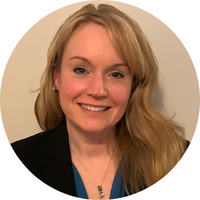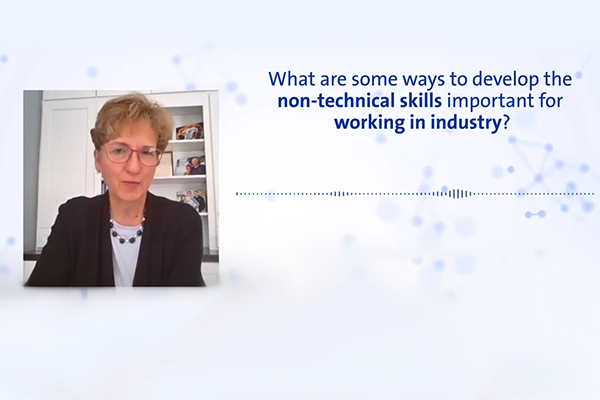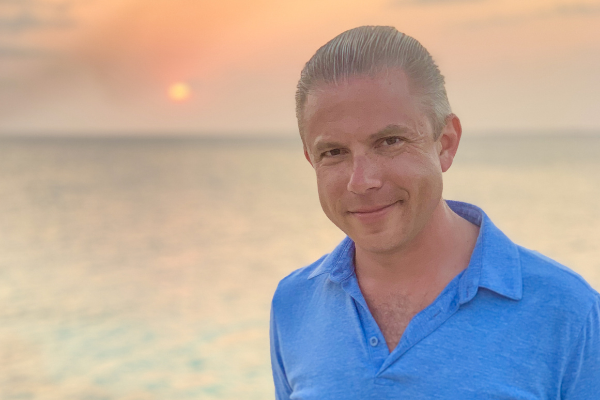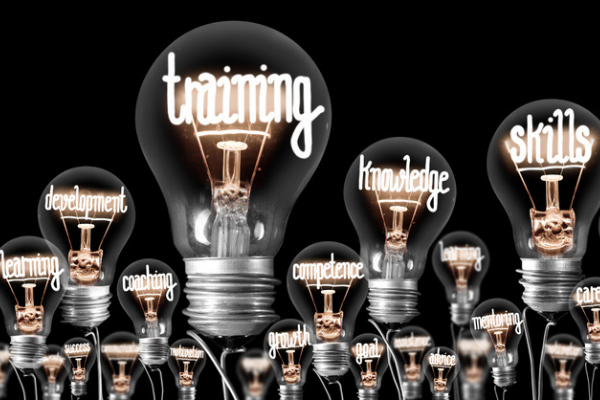
Kelly A. Brush, Research Scientist, Ashland Specialty Ingredients, USA
Kelly Brush has served in a variety of scientific roles at Zeneca, AstraZeneca, DuPont, and Ashland with research spanning the pharmaceutical, coatings, and construction industries. Her areas of expertise include small molecule synthesis, non-ionic synthetic associative thickeners (NSATs), cellulose ether synthesis, and technical writing. She currently serves as a research scientist at Ashland in the Molecular Science Applied Research Department located in Wilmington, DE. She is an active volunteer journal reviewer. When she is not working or volunteering, Kelly enjoys spending time with her family, running, tutoring chemistry, and crafting.
You have worked in many areas of chemistry, could you share advice for chemists looking to make a change or diversify their experience?
Reflect on your key accomplishments and strengths. Consider areas where you might want to grow. Rather than continuing to focus on strengthening in the comfort zones, stretch yourself and intentionally take small steps in other areas or disciplines. Identify people willing to mentor you. Recognize the value of time and be purposeful in how you spend it. If you are serious about wanting to change, commit to it. No matter the reason for wanting to diversify, it will require effort. Avoid the convenience of routine and push yourself to grow and change.
While on the subject, what are some of the more pivotal career decisions you have made?
My experience as a synthetic organic chemist at AstraZeneca was foundational. The years at the bench provided valuable lessons in developing work plans, managing time, and providing key deliverables. In many ways, it was a perfect first career.
My transition to Ashland has significantly widened my skill set. I am the principal investigator on several programs aimed at serving a variety of industries. I am closely connected to project managers and application teams and direct customer interactions are common.
In my role, I have had the opportunity to grow as the lead technical expert for one of Ashland’s rheology modifier product lines for the coatings industry. I also have gained valuable experience in cellulose ether synthesis.
In 2019, you were part of the team recognized with The Ashland Chairman’s Award for Innovation: “Superior Solvent Award.” Can you share any advice on building and succeeding in teams?
Successful teams include and value individuals with diverse skills and backgrounds. Establishing accountabilities and clear expectations early on is important. When hurdles are encountered, effective communication and agility in responding are critical for course correction. All teams experience challenges; successful teams recognize them promptly and address them effectively.
Can you share your journey through your academic education? What were the biggest challenges you faced? Would you do anything differently today?
I graduated with a Bachelor of Science degree in chemistry from the University of Delaware and started working immediately after graduation. I later pursued a Master of Science degree in chemistry from Lehigh University. I did this while working full-time as a synthetic chemist at AstraZeneca and raising three young children, a busy time for sure. I have no regrets. My professional life and personal life have been immensely rewarding.
How was the transition from academia to industry? In what ways did your university prepare you for this journey? In what areas was there room for improvement?
My transition was smooth. The University of Delaware has a highly regarded chemistry department and I gained valuable experience working in an undergraduate research lab.
Since chemists will work on teams tasked with developing ideas into marketed products, I think universities should require chemists headed for industry to take a few finance and business courses.
In addition to your work as a synthetic chemist, you have been very active in patent and technical writing. How did you develop the skills that have contributed to your success?
Aside from writing up short experimental procedures, extensive technical writing was not required for my first job in industry. However, since I’ve been at Ashland, I’ve worked closely with our legal team to draft many patent applications. I’ve also authored many records of invention and research investigation reports.
As an additional way to expand my technical writing skills, I volunteered to be a journal reviewer for “Cellulose” and “Carbohydrate Polymers”. I also recently had the opportunity to co-author a chapter for inclusion in a volume of a book entitled, "Handbook of Pyrrolidone and Caprolactam-Based Materials: Synthesis, Characterization, and Industrial Applications”, soon to be published by Wiley.
What is the one personality trait that has been most instrumental in your career success? What trait do you wish you had in greater supply?
My ability to focus has been critical to my success. I recognize how easy it can be to get distracted, so I work to manage my time effectively.
With experience I have improved significantly, but it took me time to appreciate the value of prioritization. No matter how effectively one manages time, it is a limited resource. Busy scientists need not only be concerned with laboratory output, but must carve out time for ideation and work planning. It’s important to adeptly identify and respond to critical tasks and set aside, at least temporarily, less urgent ones.
What have you learned about adapting to work for a new company - and a new manager - that others about to transition to a new company and manager might find helpful?
Just as people have different personalities and styles, so do managers. Sometimes it takes a bit of time to develop a good working relationship with a supervisor. I generally find that honest communication goes a long way. All managers appreciate dedicated, hard-working employees who deliver. If they believe you are working to this end, skilled managers will support you even through unforeseen bumps in the road.
What non-technical skills have you most relied on to-date for your career advancement?
I believe that positive feedback is critical; it builds trust. If I admire or appreciate the work someone has done, I let the person know. I try to remember to go one step further and take five minutes to send their supervisor a note. All too often, it is human nature to get busy and forget to do these things.
I have a practical mindset. From a scientific perspective, I may find an idea or concept interesting or intriguing and have a sincere desire to explore it. However, I will push to advance concepts for commercialization that make sense from a regulatory, financial, and feasibility perspective.
Your husband, too, is a chemist, and works for a large pharmaceutical company. If we eavesdropped on a typical dinner in your house, would we hear chemistry being discussed?
Though we are both chemists, our areas of expertise are different. Work is sometimes discussed at dinner, but chemistry specifically is only occasionally the topic. We both invest a lot of energy at our jobs and, once home, usually find enjoyment in focusing on other topics.
As chemists in industry, we appreciate and understand the demands of the profession, which strengthens our ability to relate to each other.
Having worked for several organizations -- Zeneca, AstraZeneca, DuPont and Ashland -- you have seen leadership exhibited in many ways. What are the hallmarks of a highly successful leader?
Highly successful leaders understand how to inspire and relate to a variety of different people. Understanding that leadership style influences culture, they select their words carefully and opt for positive, motivating language to drive performance and achieve results. They actively listen and routinely solicit feedback in order to continuously improve themselves and their teams. They appreciate strong individual contribution, but understand that recognizing and encouraging true teamwork is just as important.
What have you learned about yourself during the pandemic?
I have been reminded that we are social beings. It has been difficult for so many, especially the elderly who may be feeling isolated.
Since masks were not readily available early on, I spent a few weeks making them for family and friends. This has reignited my interest in several hobbies including sewing and repurposing furniture. Over the course of the last year, I’ve enjoyed making curtains and seat coverings and giving new life to old furniture through chalk painting.

Kelly Brush has served in a variety of scientific roles at Zeneca, AstraZeneca, DuPont, and Ashland with research spanning the pharmaceutical, coatings, and construction industries. Her areas of expertise include small molecule synthesis, non-ionic synthetic associative thickeners (NSATs), cellulose ether synthesis, and technical writing. She currently serves as a research scientist at Ashland in the Molecular Science Applied Research Department located in Wilmington, DE. She is an active volunteer journal reviewer. When she is not working or volunteering, Kelly enjoys spending time with her family, running, tutoring chemistry, and crafting.
Copyright 2021 American Chemical Society (All Rights Reserved)
This article has been edited for length and clarity. The opinions expressed in this article are the author's own and do not necessarily reflect the view of their employer or the American Chemical Society.














